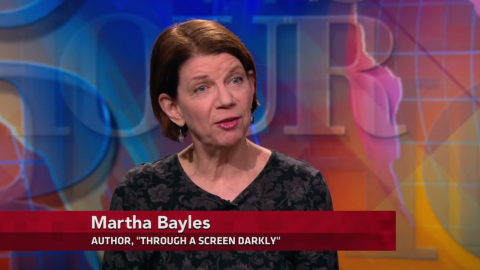__Martha Bayles, a professor of humanities at Boston College, speaks to chief arts correspondent Jeffrey Brow about her new book, “Through a Screen Darkly: Popular Culture, Public Diplomacy, and America’s Image Abroad.”__
According to Martha Bayles, a professor of humanities at Boston College, public diplomacy has disappeared. Her "new book":http://www.amazon.com/Through-Screen-Darkly-Diplomacy-Americas/dp/03001… is “Through a Screen Darkly: Popular Culture, Public Diplomacy, and America’s Image Abroad.”
Bayles defines public diplomacy as “any effort by a government to sway opinion or cultivate good will among a foreign public.” She says that diplomatic efforts were much more active before the end of the Cold War.
“During the Cold War, the government sponsored jazz tours and jazz broadcasts on (Voice of America),” Bayles told chief arts correspondent Jeffrey Brown.
But at the end of the Cold War, something shifted.
“It was more or less decided that we didn’t need (public diplomacy) anymore.”
American popular culture spread to places it hadn’t been before, including countries where the Soviet “iron curtain” had just lifted.
“Popular culture is a commercial undertaking and it tends to go for the lowest common denominator. And since the media have been deregulated and with new technology, what happens is the lowest common denominator takes the form of, as any American can tell you, a lot of graphic sex, a lot of explicit violence, always trying to outdo the last generation of media.”
It’s those cultural exports that Bayles believes have affected America’s image abroad. For example, the music the world hears isn’t having the same effect across the oceans as the jazz tours did during the Cold War or that of rock music at the end of the war.
“I don’t think American popular music has the same cache that it used to have and its partially because we cranked up the sexual heat so much that it turns a lot of people off.”




















